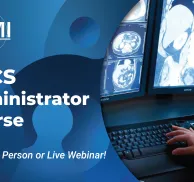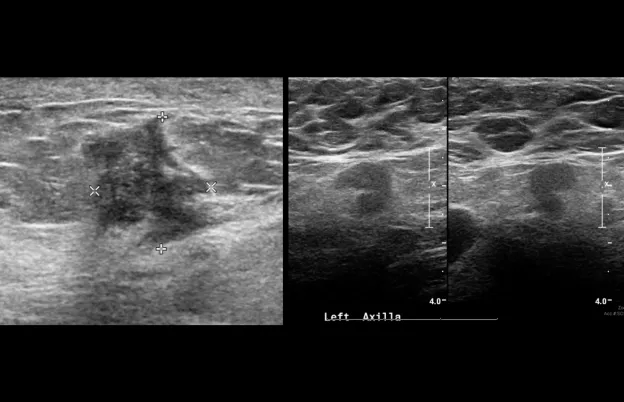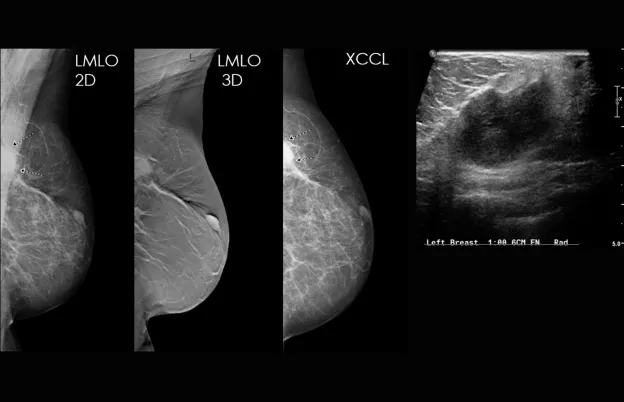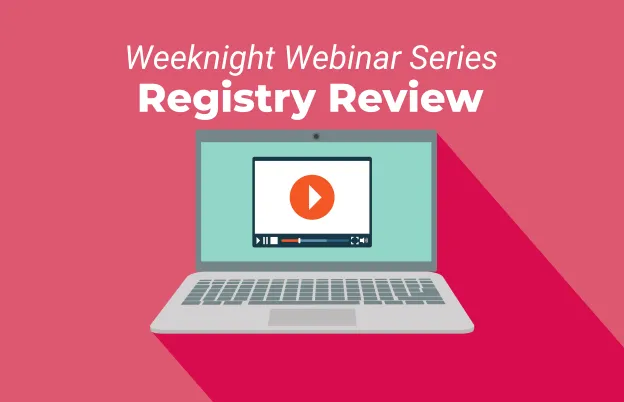
Free Webinar: Is Your Culture a “Just Culture”?
About this Program
This free webinar is designed for healthcare workers and medical imaging professionals at any level who want to deepen their understanding of Just Culture and its impact on workplace safety and accountability. When errors occur, why do we instinctively seek someone to blame instead of identifying the root cause? This session will explore the critical distinction between individual and organizational accountability, helping attendees recognize whether an issue stems from reckless behavior, at-risk behavior, or a blameless error.
Participants will gain insights into the history of Just Culture—how it originated in the airline industry and evolved into healthcare—as well as the broader development of safety cultures in healthcare since the 1970s. We will also examine The Joint Commission’s perspectives on safety culture and discuss breach of duty, appropriate responses to errors, and strategies for managing human reliability.
Educational Objectives
By the end of this free webinar, attendess will be able to:
- Identify system issues and describe ways to “own” the work environment
- Identify behaviors and roadblocks that contribute to errors or bad outcomes that may have been preventable
- Explain processes to put into place to uncover why errors occurred, instead of automatically using disciplinary actions for blameless errors.
Schedule
What this course will cover
Understanding Just Culture in Healthcare
1. The Origins of Just Culture
- The “Just Culture” origination
- Resources about “Just Culture”
- The history of safety cultures used in healthcare, prior to the “Just Culture”
2. Adoption of Just Culture in Healthcare
- Health care adoption of the “Just Culture”
- Joint Commission’s comments on a safety culture
3. Implementing a Just Culture
- Institution of a Just Culture – decoupling injury from severity
- The Just Culture algorithm
4. Accountability and Breach of Duty
- Duty to follow a procedural rule
- Three causes of breach of duty
5. Responding to Errors in a Just Culture
- Appropriate response to errors:
- Human error (blameless error)
- At-risk behavior
- Reckless behavior
6. Enhancing Safety and Reliability
- Reduction of human error possibilities
- Managing system reliability (hardwire)
- Managing human reliability
- Roadblocks that contribute to errors
Audience
Who should attend?
This webinar is designed for healthcare workers and medical imaging professionals at any level.
Program Faculty
Meet your presenter(s)

Brenda DeBastiani
MBA, CRA, FAHRA, RT(R)
Brenda DeBastiani is the President of MTMI, a position that she has held since April 2024. Before this, Brenda was the Director of Imaging at Tampa General Hospital Spring Hill for 2 years, and Director of Imaging at Mon Health Medical Center in Morgantown, WV, where she worked for 33 years. Brenda holds a Bachelor’s degree from Fairmont State University and an MBA from Waynesburg University. Brenda has spoken at numerous national and regional conferences, is an AHRA Fellow, a Certified Radiology Administrator, and was the 2022-2023 AHRA President.
Credits
Accredited training programs

ASRT Pending
Category A/A+ CE credit is pending approval by the ASRT. An application for 1 hours of credit for radiologic technologists recognized by the ARRT® and various licensure states has been filed.
Tuition
Convenient payment options available
| Audience | Price | Early Price | Member Price | Member Early Price |
|---|---|---|---|---|
| Technologist | $0.00 | $0.00 | $0.00 | $0.00 |
Cancellation Policy
Webinars less than 8 hours of credit
Refunds, minus a $15 processing fee, will be granted for cancellations received at least 3 days prior to the program. Cancellations received within 3 days of the webinar will receive a credit toward a future MTMI program, minus the $15 processing fee. No refunds will be made after the webinar starts. MTMI reserves the right to cancel any scheduled program because of low advance registration or other reasons. MTMI’s liability is limited to a refund of any program tuition paid. WEBINAR ATTENDEES that cannot log in due to unsolvable technical issues beyond their control will be eligible for a full refund.












